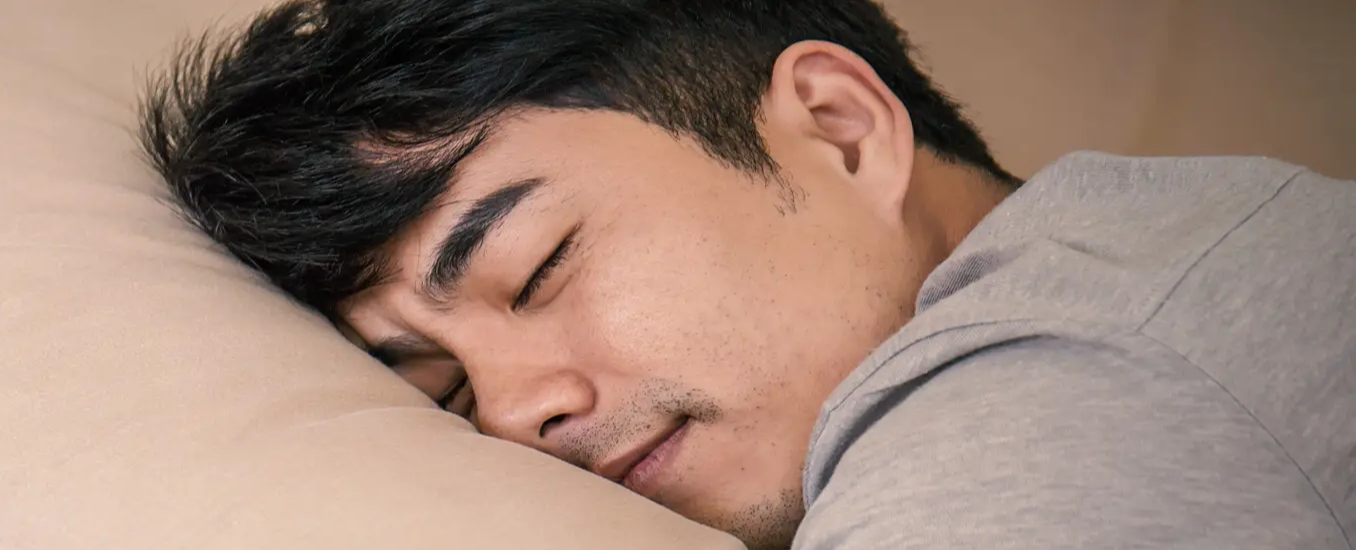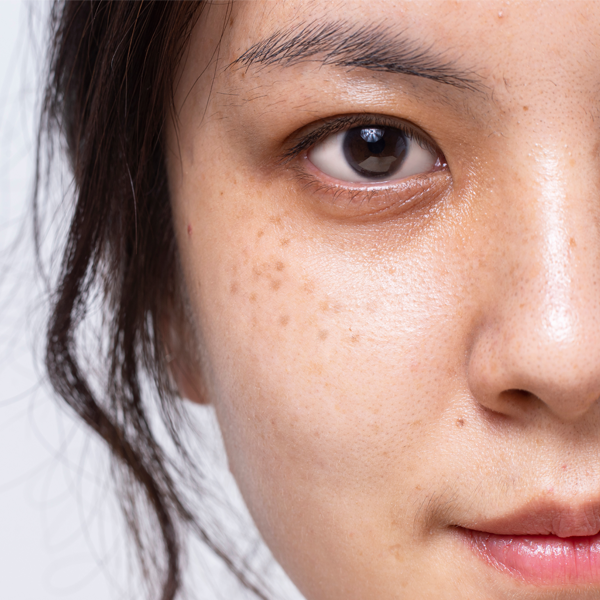4 Ways Vitamin E Can Help Improve One's Sleep
Search “how to sleep better,” and you’ll find countless suggestions, everything from prescription pills to various sedatives (sleeping medicines). But what if you’re not ready for those kinds of pills just yet? If you're looking for another way to support your sleep, Vitamin E might be worth a second look. While it’s mostly known for boosting skin health and immunity, this underrated nutrient may also support better sleep.
You do your best to get to bed on time, but life gets in the way. Long hours at work, inconsistent meals, a stressful day, or a non-conducive sleep environment can throw off your sleep routine.
Before turning to stronger sleep solutions, it might be worth looking into Vitamin E. Are you curious how? Here's how Vitamin E and sleep are connected.
- It Helps Balance Oxidative Stress
High levels of oxidative stress, whether triggered by external factors like pollution and poor diet, or internal imbalances, have been closely linked to sleep disturbances and various sleep disorders.1,2 This buildup of harmful molecules in the body can interfere with the natural sleep-wake cycle, making it harder to fall or stay asleep. Fortunately, studies suggest that reducing oxidative stress through the use of antioxidants may help promote deeper, more restful sleep and reduce the negative effects of sleep deprivation.1
- It May Help Versus Hot Flashes
If you’re going through menopause, chances are you’ve experienced hot flashes. But what exactly are they? A hot flash feels like a sudden rush of heat that spreads through your upper body, often your face, neck, and chest. Your skin turns red, you start sweating, and your heart may beat faster.3 It can come without warning and leave you uncomfortable.
The challenging part? They can strike at any time, including the middle of the night. You might wake up drenched in sweat, throwing off the blankets while trying to cool down. Yet it's often overlooked or simply managed with sleeping pills. But could there be alternatives? That’s exactly what researchers set out to find in a recent study exploring the connection between Vitamin E and sleep.
In one study, 160 postmenopausal women with chronic insomnia were split into two groups.4 One group took a daily dose of Vitamin E, while the other received a capsule with no active ingredient.4 After just one month, the results were impressive: the women who took Vitamin E slept better, showed significant improvements in their sleep quality, and were less likely to depend on sedative medications.4
To put simply, Vitamin E didn’t just help improve sleep, it also reduced the need for sleep aids.4
- It Can Help Ease Restless Leg Syndrome (RLS)
Restless Leg Syndrome is a neurological condition that causes an irresistible urge to move your legs, usually due to uncomfortable sensations (like tingling, crawling, or itching). For some people, Restless Legs Syndrome (RLS) is a serious sleep disruptor.
Interestingly, emerging research suggests that Vitamin C and E may help reduce RLS symptoms. In some cases, their effects were similar to those of usual medication, at least in the short term.5 A study by Sagheb and company tested Vitamin C, Vitamin E, a combo of both, and a placebo. All four groups showed some symptom improvement. However, those who took vitamins (whether C, E, or both) improved much more than the placebo group.5
- It Helps in Boosting Brain Chemicals
Ever wonder why some people just fall asleep the moment their head hits the pillow, while others lie awake all night? Antioxidants Vitamin A, C and E have interrelated processes that regulate neurotransmitters involved in the sleep-wake cycle.6
When this system is out of balance, it can cause restless nights and poor sleep quality.6 In fact, a study by Beydoun and colleagues, which involved over 2,400 adults, found that people with lower levels of Vitamin E were more likely to experience sleep disorders.6
So, is there a real link between Vitamin E and sleep quality? The growing evidence says yes. While it won’t knock you out like a sleeping pill, Vitamin E helps optimize the body’s natural sleep-wake processes.
Vitamin E is found in several foods, with vegetable oils being the richest source.7 You’ll also find good amounts in nuts, seeds, whole grains, and wheat germ.7 On the other hand, animal-based foods usually contain only small amounts of Vitamin E, so they’re not the best option if you’re looking to boost your intake.7
That said, while it’s great to get nutrients from food, the reality is that you’d have to eat a huge amount of these Vitamin E-rich foods every day to reach the same levels found in supplements.
If you are looking for an over-the-counter vitamin, you might want to consider dl-Alpha Tocopheryl Acetate (Vitamin E) Pharex® E.
dl-Alpha Tocopheryl Acetate (Vitamin E) Pharex® E contains a powerful antioxidant in the form of dl-Alpha Tocopheryl Acetate (Vitamin E), which helps boost your health in many ways.8,9
Vitamin E helps reduce the risk of damage and disease caused by free radicals (unstable molecules that damage cells).8 It plays a vital role in helping protect the body from stress and supports overall cell health.10 Additionally, it aids in enhancing brain function and mental performance, while helping in keeping the skin youthful looking.11,12
By aiding in protecting your body from internal and external stressors, Vitamin E can help create a more restful environment for sleep, especially if you’re struggling with lifestyle factors that affect your rest.
Always remember, it’s important to talk to your doctor before adding any new supplement to your routine, especially if you have existing health conditions or are taking medications.
This product is not intended to diagnose, treat, cure, or prevent any disease. It is not approved for therapeutic claims.
Take one capsule (400 IU) of dl-Alpha Tocopheryl Acetate (Vitamin E) Pharex® E orally, once a day, or as prescribed by your doctor.13
dl-Alpha Tocopheryl Acetate (Vitamin E) Pharex® E is available in all leading pharmacies nationwide, and online via Lazada and Shopee for Php 10.00 SRP per capsule.
If symptoms persist consult a doctor.
- David, A. V. A., Parasuraman, S., & Edward, E. J. (2023). Role of Antioxidants in sleep Disorders: a review. Journal of Pharmacology and Pharmacotherapeutics, 14(4), 253–258. https://journals.sagepub.com/doi/full/10.1177/0976500X241229835#core-bibr30-0976500X241229835-1
- Liu, J., Ghastine, L., Um, P., Rovit, E., & Wu, T. (2021). Environmental exposures and sleep outcomes: A review of evidence, potential mechanisms, and implications. Environmental research, 196, 110406. https://pmc.ncbi.nlm.nih.gov/articles/PMC8081760/
- Lugo, T., & Tetrokalashvili, M. (2022, December 19). Hot flashes. In StatPearls. StatPearls Publishing. https://www.ncbi.nlm.nih.gov/books/NBK539827/
- Thongchumnum, W., Vallibhakara, S. A., Sophonsritsuk, A., & Vallibhakara, O. (2023). Effect of Vitamin E Supplementation on Chronic Insomnia Disorder in Postmenopausal Women: A Prospective, Double-Blinded Randomized Controlled Trial. Nutrients, 15(5), 1187. https://doi.org/10.3390/nu15051187
- González-Parejo, P., Martín-Núñez, J., Cabrera-Martos, I., & Valenza, M. C. (2024). Effects of dietary supplementation in patients with restless legs syndrome: A systematic review. Nutrients, 16(14), 2315. https://www.mdpi.com/2072-6643/16/14/2315
- Jiang, J., Li, D., Huang, T., Huang, S., Tan, H., & Xia, Z. (2024). Antioxidants and the risk of sleep disorders: results from NHANES and two-sample Mendelian randomization study. Frontiers in Nutrition, 11. https://doi.org/10.3389/fnut.2024.1453064
- Vitamins A, D, E, and K: The fat-soluble vitamins. (2023, April 2). National Nutrition Council Transparency Seal Logo Freedom of Information Logo. https://nnc.gov.ph/mindanao-region/vitamins-a-d-e-and-k-the-fat-soluble-vitamins
- Office of Dietary Supplements - Vitamin E. (2021). https://ods.od.nih.gov/factsheets/VitaminE-Consumer/
- Lee, G. Y., & Han, S. N. (2018). The Role of Vitamin E in Immunity. Nutrients, 10(11), 1614. https://doi.org/10.3390/nu10111614
- Vitamin E. (2024, May 9). The Nutrition Source. https://nutritionsource.hsph.harvard.edu/vitamin-e/
- La Fata, G., Weber, P., & Mohajeri, M. H. (2014). Effects of vitamin E on cognitive performance during ageing and in Alzheimer's disease. Nutrients, 6(12), 5453–5472. https://doi.org/10.3390/nu6125453
- Vitamin E and skin health. (2024, January 2). Linus Pauling Institute. https://lpi.oregonstate.edu/mic/health-disease/skin-health/vitamin-E
- Pharex E Patient Information Leaflet. Date of Revision: 29 October 2021. dl Alpha Tocopheryl Acetate (Vitamin E) Pharex® E. https://www.pharexhealth.com/products/pharex-e
Let your circle know about this article

In 1987, Pharex then shifted to marketing and distributing generic products, while appointing Metro Drug as its exclusive brand distributor. This move proved to be timely because of the passing of the Generics Act of 1988. Many successful years followed, and in 2016, Pharex was acquired by RiteMED Inc. Even after more than 35 years in the industry, Pharex remains committed to empowering Filipino families by providing them with top-notch healthcare solutions.
More on Pharex here27th Floor Greenfield Tower, Mayflower St. Corner Williams St., Highway Hills, Mandaluyong City
For other questions, please contact us at (02) 7971-3333 or at productsafetyph@pharexhealth.com





